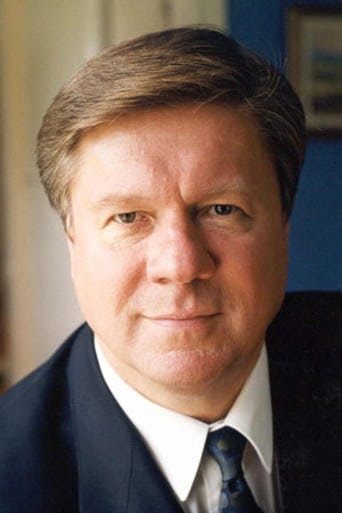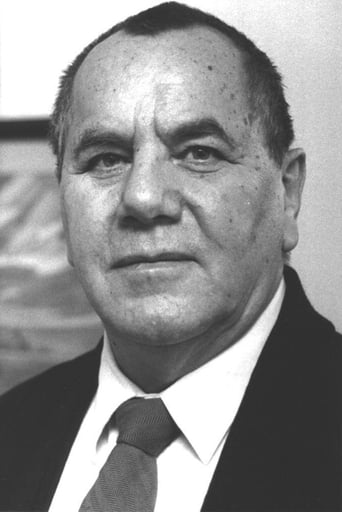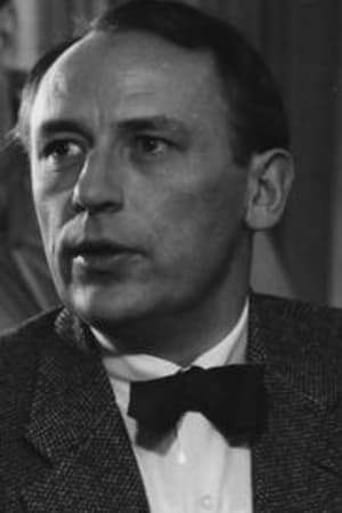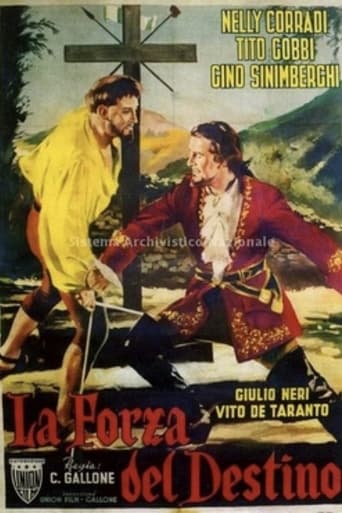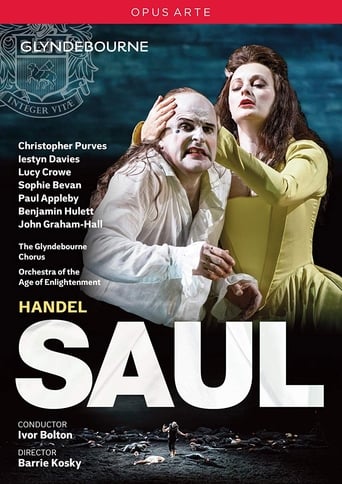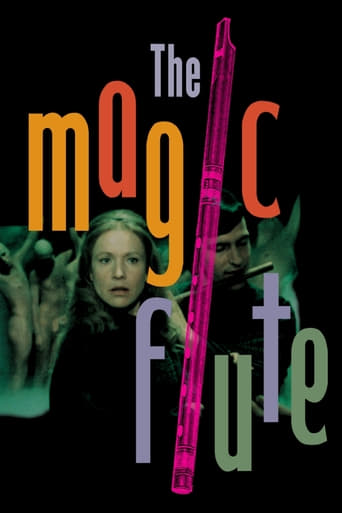
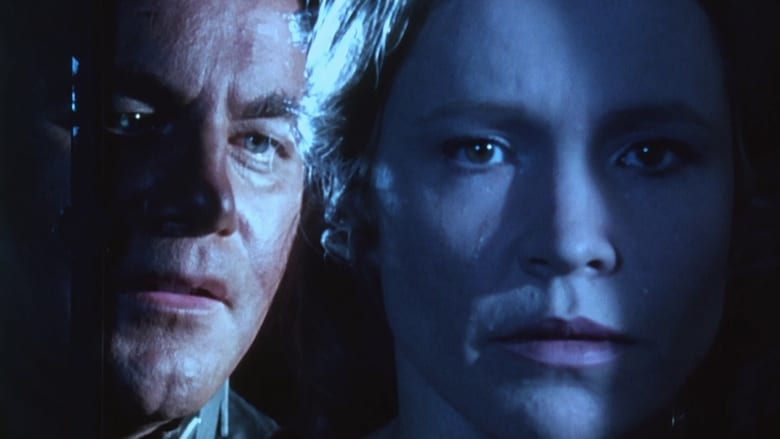
The Magic Flute (1975)
The Queen of the Night enlists a handsome prince named Tamino to rescue her beautiful kidnapped daughter, Princess Pamina, in this screen adaptation of the beloved Mozart opera. Aided by the lovelorn bird hunter Papageno and a magical flute that holds the power to change the hearts of men, young Tamino embarks on a quest for true love, leading to the evil Sarastro's temple where Pamina is held captive.
Watch Trailer
Cast


Similar titles
Reviews
Surprisingly incoherent and boring
Good films always raise compelling questions, whether the format is fiction or documentary fact.
The movie turns out to be a little better than the average. Starting from a romantic formula often seen in the cinema, it ends in the most predictable (and somewhat bland) way.
Great movie. Not sure what people expected but I found it highly entertaining.
Of all of Mozart's operas, I cannot decide which is my favourite out of Don Giovanni, Marriage of Figaro(Le Nozze Di Figaro) and Magic Flute(Die Zauberflote), though I have a fondness for Cosi Fan Tutte too. I love the stories and characters of these operas, and the music in all of Mozart's operas(even those with stories not as strong such Die Entfuhrung Aus Dem Serail) is magnificent.I have seen several opera productions, and a number of opera films. My favourite opera films prior to seeing this Magic Flute were the 1976 Tosca, Losey's Don Giovanni, Zeffirelli's La Traviata, Rossi's Carmen, Ponelle's Le Nozze Di Figaro and Ponelle's Rigoletto. I saw this Magic Flute for two primary reasons, one that Magic Flute is one of my favourite operas, and the other being the great Ingmar Bergman.The Magic Flute didn't disappoint. Bergman's direction was accomplished as always, the cinematography was gorgeous and the largely symbolic images looked amazing and enhanced the compelling story. The only ones that didn't quite work for me were the shots of the audience in the overture, which were a little distracting and unnecessary for me. The sets are suitably lavish and the costumes while different than one would expect are good.As for the orchestral playing and conducting, they were superb, with the orchestra playing with power and clarity, and the conducting rock-solid with well-judged tempos. The acting and singing are very good generally, the best being Hakan Hagegard's hilarious Papagaeno and Birgit Nordin's imperiously chilling Queen of the Night. Josef Kostlinger is excellent as Tamino too, which is surprising in a sense since I have often come across some dashing, beautifully-sung but very bland tenors in the role.Irma Urrila is very poignant as Pamina, and the three ladies and three boys are very well blended. Ulrik Cold's Sarastro is firm in the acting, but part of me would have liked a darker and perhaps more powerful voice, but he does do very well. Ragnar Ulfung's Monosatos is rather over-played for my liking.As for staging, I liked it, especially the two trials and the delightful Papagaeno-Papagaena duet. The decision to especially move Papagaeno's second aria to the second trial was actually a very good one. Only the first scene with the dragon struck a false note with me, the dragon looked decent but Kothlinger's acting could've been much more panicked.Overall, despite the few flaws I had with it, it is a great film and one of my favourites to do with opera. 9/10 Bethany Cox
Ingmar Bergman's 1975 film/TV version of Wolfgang Amadeus Mozart's opera The Magic Flute (Trollflöjten) is a serviceable film, and nothing that really takes advantage of either of its media- opera and film, to its fullest; although it begs the question as to why it was ever made? It is basically a filmed version of the play (although the singing was recorded beforehand and looped in to the film, thus allowing the actors to emote without worrying of their singing)- replete with shots of a gawking audience, but very little new is added to the tale. Yes, it's sung in Swedish, and there are a few minor changes, such as the sorcerer Sarastro being Pamina's father- which adds a tinge of Bergmanian and Freudian angst to the opera, and a few scenes being reordered, but overall it's the same familiar tale.While watching it I wondered what such a film of Swan Lake, by Federico Fellini, would have been like. Doubtless, it would have been more over the top than this production, but that fact only reinforces my query as to why film this opera the way it is filmed? Yes, Bergman is almost as famed as a stage director as he is a film director, and there are some scenes of 'backstage' antics- especially during a several minute long Intermission, where the actor playing Sarastro, Ulrik Cold- his real name, is shown reading the score of another opera, Parsifal, and another actor is reading a Donald Duck comic book, but the tale itself is rather straightforward, and at two hours and fifteen minutes, a bit too long, even if abridged from the over three hours of the opera; although one can go to the bathroom and not miss much of what is going on . Overall, however, The Magic Flute succeeds as a film not because of Bergman's considerable skills in his art form, nor the acting skills of his cast, but because of their singing skills, and the music of Mozart. That one great artist, at his height, can aid another great artist, at less than his height, is nothing to be ashamed of, but it does make for a rather average viewing experience, something quite rare when that artist is named Ingmar Bergman.
The Queen of the Night (Birgit Nordin) offers his daughter Pamina (Irma Urrila) to Tamino (Josef Köstlinger), but he has to bring her back from her father and priest Sarastro (Ulrik Cold). She gives a magic flute to Tamino and magic bells to the bird hunter Papageno (Håkan Hagegård), who follows Tamino and wants to find a wife. The duo travels in a journey of love and knowledge.Ingmar Bergman's adaptation of the last opera of Mozart to the cinema is a homage of the master to the opera and theater. Sang in Swedish and divided in three parts, Bergman shows faces of the audience in the overture (I particularly did not like this part); the first act; the intermission, showing the backstage; and the second and last act. The cast in general is very beautiful, highlighting the singer Irma Urrila. My vote is seven.Title (Brazil): "A Flauta Mágica" ("The Magic Flute")
Adapting theater to the screen is not easy. It is difficult enough to film a play; staying too close to the text can render the tone too "stagy," while "opening up" the story can cause it to lose its authentic feel. Filming opera is twice as problematic- there is so much that is rooted to the stage and simply cannot be pulled away. How is it possible to film something that has been performed in such a specific, disciplined way for hundreds of years and keep all the elements fully intact? The answer has been provided by Ingmar Bergman, a man known to most of the world for harrowing films which peer unsentimentally into the depths of the human soul. With "The Magic Flute," Bergman takes another great talent of his- theater direction- and combines it with his cinematic abilities to create an elaborate fantasy that even his detractors can enjoy.Rather than just treating Mozart's opera as a story to be filmed, Bergman relies on familiar themes within the narrative to strike a balance between the stage and the screen while keeping the audience involved throughout. This is not to say that the story is simplified or made abundantly clear to any half-attentive viewer; the surprising accessibility of the film comes not from any reconstruction of the story but rather from an emphasis on elements that today's audience can easily recognize: sacrifices that are made for love, rebellion against the amoral nature of one's community, and magical occurrences that pop up just in time to save the hero, to name a few. Although the opera itself unfolds on a stage, with frequent reaction shots of the audience, Bergman's direction keeps us so deeply involved that tone is distinctly that of a film. Indeed, `The Magic Flute' proves to be a very cinematic opera, and there are moments when the imagery, theatrical as it is, becomes so overwhelming that Bergman has to cut to the audience to remind us that we are in a theater.`The Magic Flute' is evidence that the `epic' existed long before movies, and that much of what we enjoy viewing today owes its style to stories that have been told through vastly different mediums for centuries on end.


